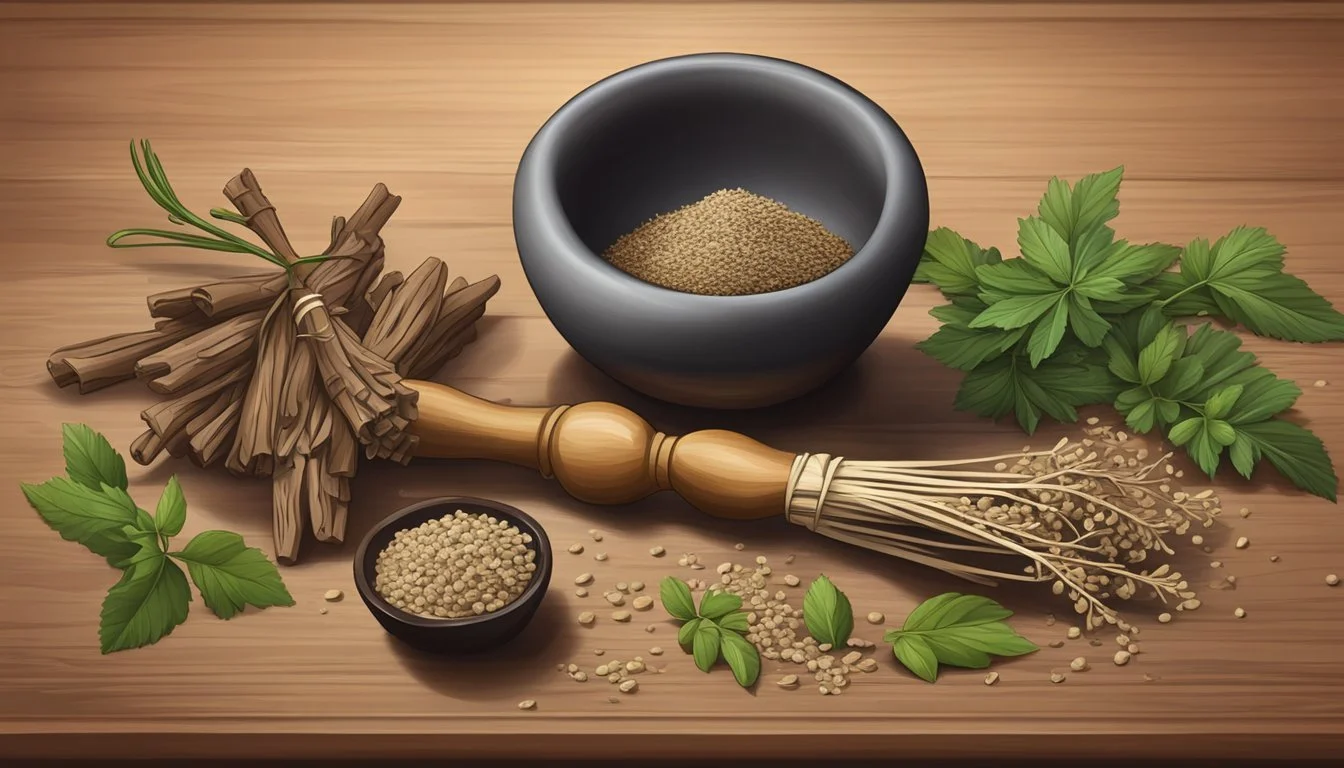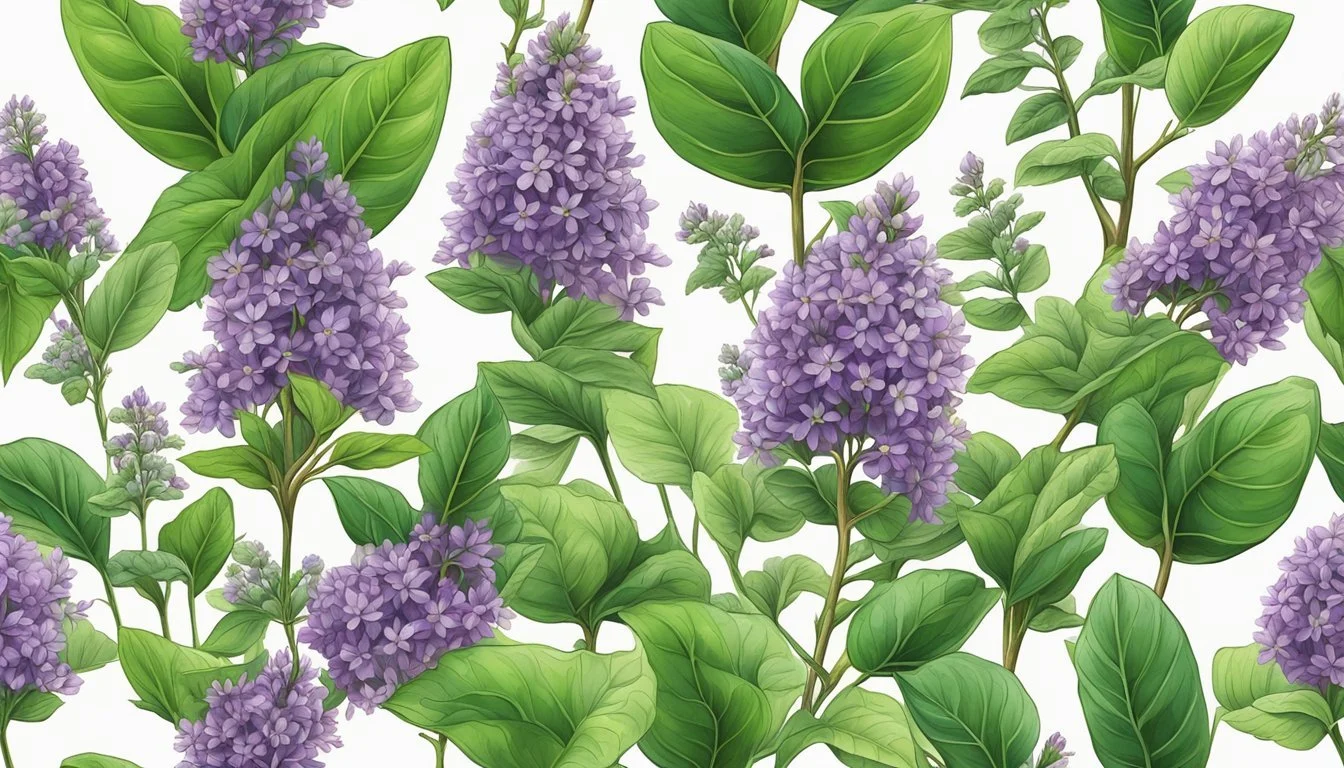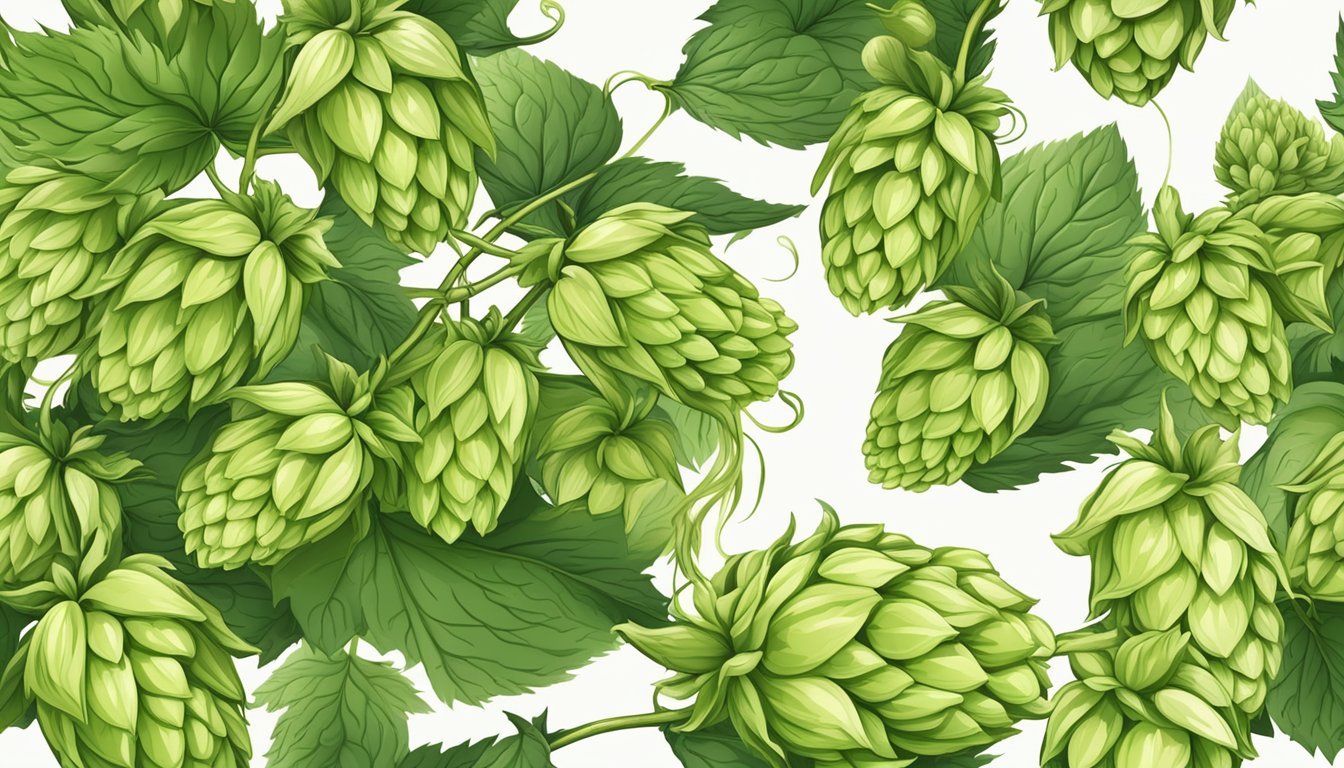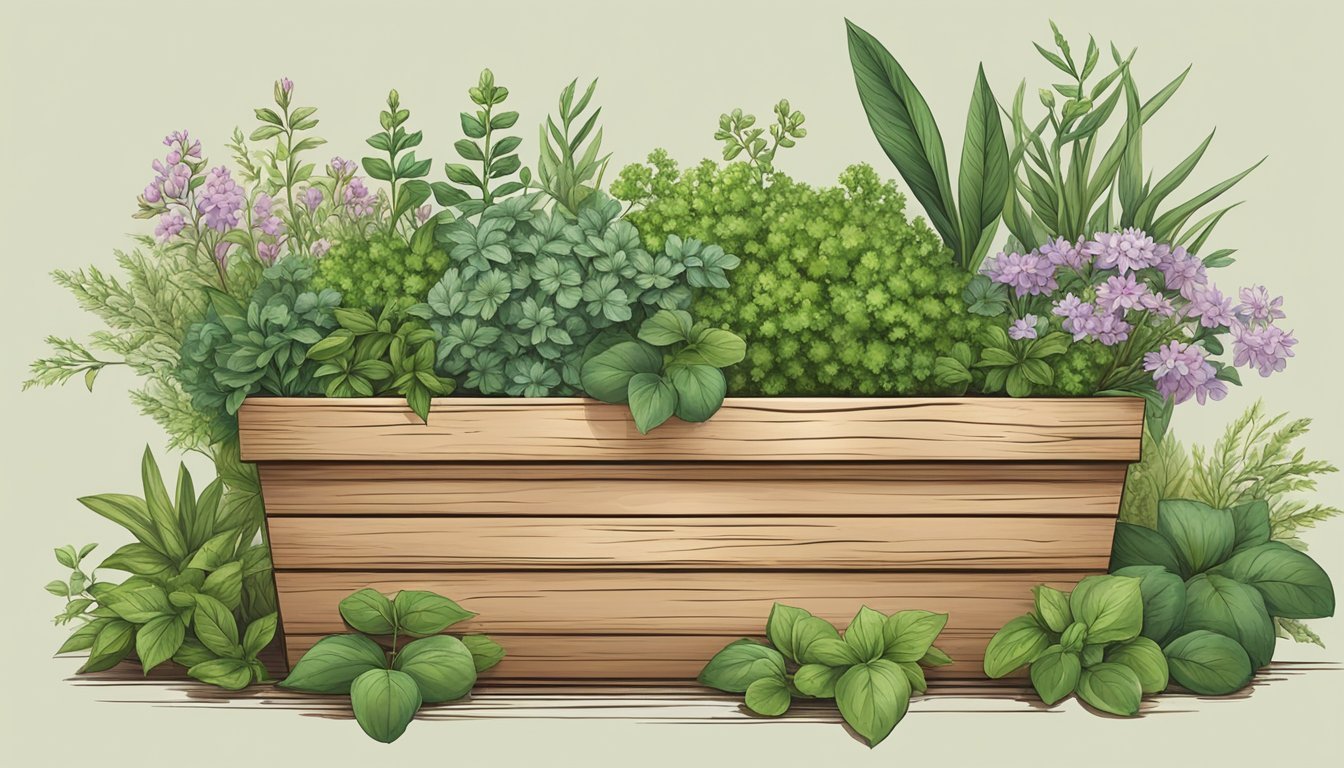The 6 Best Herbs For Stress Relief & Relaxation
Discover Effective Natural Solutions
Discover > Healthy Living Through Food > The 6 Best Herbs For Stress Relief & Relaxation
In today's fast-paced world, stress and anxiety have become an unwelcome part of many people's lives. Persistent worry and tension can affect not only mental health but also physical well-being. Fortunately, the world of herbal remedies offers a variety of options to support stress relief and relaxation.
Many herbs possess natural properties that help to alleviate stress, boost mood, and promote a sense of calm. Incorporating these herbs into a daily routine can provide a gentle, effective way to manage and reduce anxiety levels. Here, we will explore six of the best herbs known to combat stress and bring relaxation to the mind and body.
By seeking out and implementing these herbal solutions, individuals can reduce their reliance on pharmaceuticals and embrace a more balanced, holistic approach to stress relief. Knowledge of these herbs can empower and encourage a journey towards improved mental and emotional well-being.
Understanding Stress and Relaxation
Stress is a natural reaction to various situations we encounter in our daily lives. It is commonly known as the body's response to a demand or challenge. The release of stress hormones, such as cortisol, prepares the body to face these challenges. While experiencing occasional stress is normal, chronic stress can have negative outcomes on one's physical and mental health.
Relaxation, on the other hand, refers to the process of releasing tension, finding tranquility, and restoring balance. It is crucial for stress relief and management. By achieving relaxation, an individual can counteract the adverse effects of stress, such as increased cortisol levels and perceived stress.
Stress and cortisol: Cortisol, a primary stress hormone, plays a crucial role in managing stress. It allows the body to maintain homeostasis by aiding in regulating blood sugar and reducing inflammation. However, consistently elevated cortisol levels due to chronic stress can lead to various health problems, such as weight gain, fatigue, and anxiety.
Ways to relieve stress and achieve relaxation: There are many methods for stress relief and relaxation. Techniques such as mindfulness meditation, deep breathing exercises, and progressive muscle relaxation are examples of natural and effective ways to manage stress.
In addition to these techniques, certain herbs are known to aid in stress relief and relaxation. The following list includes six beneficial herbs for stress relief:
Lavender: Known for its calming effects and ability to reduce anxiety.
Chamomile: Famous for its natural soothing and sedative properties, often used in teas.
Lemon balm: A popular herb used to reduce stress and increase calmness.
Ashwagandha: An adaptogen herb that helps the body adapt to stress and supports overall well-being.
Valerian root: Known for its sedative effects, which helps promote relaxation and improve sleep quality.
Rhodiola: Another adaptogen herb that enhances physical and mental resilience while reducing fatigue and anxiety.
Incorporating these herbs into your daily routine can contribute to better stress management, promoting relaxation and an overall healthier lifestyle. However, it is essential to consult with a healthcare professional before using any herbal supplements, as they may interact with medications or cause side effects.
Natural Herbs: A Boon for Mental Health
In the modern world, mental health is a growing concern for people of all ages and backgrounds. People are increasingly looking for natural and effective ways to support their well-being. One such approach is the use of herbal remedies. In this section, we will explore the role of natural herbs in promoting relaxation and alleviating stress.
Natural herbs have been used for centuries across various cultures to support mental health. In the realm of Ayurveda, for example, herbal remedies are employed to balance the mind and body, providing holistic support to individuals. Herbal supplements are also widely used by modern herbalists to address emotional imbalances and promote relaxation.
The following list outlines six excellent herbs that have been shown to provide health benefits in terms of relaxation and stress relief:
Ashwagandha: An adaptogenic herb in the Ayurvedic tradition, ashwagandha is known for its ability to help the body adapt to stress, enhancing mental clarity and cognitive function.
Chamomile: A widely recognized herb for its calming properties, chamomile is often used in teas to encourage relaxation and support a restful night's sleep.
Lavender: Known for its soothing aroma, lavender is often used in essential oils or dried forms as a natural aid for relaxation and stress reduction.
Lemon balm: This refreshing herb from the mint family is known to have gentle calming effects, ideal for addressing mild stress and tension.
Passionflower: A beautiful flowering vine, passionflower is often used as an herbal supplement to relieve anxiety and support restful sleep.
Rhodiola: Another adaptogenic herb, rhodiola is known to improve mental clarity and resilience, making it helpful for individuals coping with stress.
In summary, these natural herbs offer a vast array of health benefits for those seeking support in managing stress and promoting relaxation. While each herb has unique properties, the overall trend of utilizing herbal remedies to enhance mental health is a testament to their power. For those interested in exploring herbal supplements further, it is essential to consult with an experienced herbalist or healthcare practitioner for personalized guidance and recommendations.
The Efficacy of Potent Herbs
In this section, we explore the effectiveness of six well-known herbs that promote relaxation and relieve stress. These herbs are:
Chamomile
Chamomile has long been recognized for its calming properties, making it an ideal herb for stress relief and relaxation. This flower's mild yet potent effect can be attributed to the compound apigenin, which binds to specific receptors in the brain, reducing anxiety and facilitating sleep. Chamomile can be consumed as a tea or taken as a supplement for best results.
Lavender
Lavender is another well-known herb for promoting relaxation and reducing anxiety. Its aroma has been shown to stimulate the production of the neurotransmitter GABA, which helps calm the nervous system. Using lavender essential oil in aromatherapy, adding dried lavender (how long does dried lavender last?) to baths, or ingesting it in supplement form are all effective ways to harness its potent relaxing properties.
Ashwagandha
Ashwagandha, an adaptogenic herb rooted in Ayurvedic medicine, works by reducing cortisol, the body's primary stress hormone. This potent herb not only helps to alleviate stress but also provides various health benefits, such as reduced inflammation, enhanced cognitive function, and increased muscle mass. Ashwagandha can be found in supplement form, including capsules, powders, and tinctures.
Lemon Balm
Lemon balm is another herb known for its calming effect on the nervous system. It contains the compound rosmarinic acid, which has powerful stress-relieving and antioxidant properties. Consuming lemon balm as a tea, applying it topically in the form of a lotion or cream, or using its essential oil for aromatherapy can all contribute to feelings of relaxation.
Passionflower
Passionflower's effectiveness in stress relief lies in its ability to boost the production of the important calming neurotransmitter, GABA. This herb's soothing effects encourage relaxation and help improve sleep quality. Passionflower can be consumed as a tea, taken as a supplement, or applied topically in the form of a cream or lotion.
Valerian Root
Valerian root is a potent herb well-known for its sedative and sleep-promoting properties. It contains compounds such as valerenic acid and isovaleric acid, which work together to calm the nervous system and encourage relaxation. Valerian root is available in various forms, including teas, supplements, and tinctures, making it a versatile option for stress relief.
Each of these herbs offers unique qualities that contribute to stress relief and relaxation. Incorporating one or more of these potent herbs into your daily routine can help combat stress and improve overall well-being.
Other Beneficial Herbs
St. John's Wort
St. John's Wort (Hypericum perforatum) is a well-known herb for its potential to help alleviate symptoms of mild to moderate depression. It is thought to work by increasing the availability of certain neurotransmitters in the brain, such as serotonin, which plays a role in regulating mood. Some research also suggests it may help reduce stress and anxiety. To reap its benefits, St. John's Wort is often consumed in the form of teas, capsules, or tinctures. It is important to note that this herb can interact with certain medications, and it is advisable to consult a healthcare professional before beginning supplementation.
Tulsi (Holy Basil)
Tulsi, or Holy Basil (Ocimum tenuiflorum), is an adaptogenic herb traditionally used in Ayurvedic medicine for its potential to help the body adapt to stress and promote relaxation. Potential benefits of Tulsi include:
Reduced stress: Studies suggest that Tulsi may help lower cortisol levels, a hormone associated with stress.
Improved cognition: Some research indicates that Tulsi may enhance cognitive function and protect against age-related memory decline.
Immune support: Tulsi may help boost the immune system by increasing the production of infection-fighting cells.
Tulsi can be found in various forms, such as teas, capsules, and tinctures, making it a versatile supplement for stress relief.
Hops
Hops (Humulus lupulus) are best known for their use in beer production, but this herb also has a long history of traditional uses for promoting relaxation and sleep. Hops contain compounds known as flavonoids and alpha acids, which are believed to be responsible for its calming effects. Some potential benefits of hops include:
Reduced stress: Early research suggests that hops may help regulate cortisol levels, thus reducing stress.
Better sleep: Studies indicate that hops may have sedative effects, which can improve sleep quality and promote relaxation.
Hops can be consumed in various forms, including teas, capsules, and essential oils for aromatherapy. It is important to start with small doses and increase gradually to find the optimal amount for personal stress relief efforts.
Preparation of Herbs for Relaxation
Herbs can be prepared in various ways to help with stress relief and relaxation. In this section, we will explore four popular methods of using herbs: tea, tincture, capsule, and essential oil. Each method has its unique benefits, and certain herbs may be more suited to certain methods.
Tea
Tea is probably the most familiar and accessible way to enjoy the calming effects of herbs. To prepare herbal teas, simply steep the dried or fresh herbs in hot water for a few minutes. Chamomile tea, for example, is a popular choice due to its soothing and calming properties.
Here are some popular herbs to include in your relaxation tea:
Chamomile
Lavender
Lemon Balm
Valerian Root
Tincture
A tincture is a concentrated herbal extract made by soaking herbs in a solvent like alcohol or glycerin for an extended period of time. Tinctures can be taken directly or added to a beverage, such as water, tea, or juice. To make a tincture, fill a jar with your chosen herbs and cover them with grain alcohol, vodka, or glycerin. Seal the jar tightly, and store it in a dark, cool place for at least four weeks. Shake the jar once a week, then strain the mixture through a cheesecloth and transfer the liquid to a dropper bottle.
Some herbs to consider for a relaxation tincture:
Passionflower
Skullcap
Valerian
Hops
Capsule
Herbal relaxation supplements can also be taken in capsule form. Capsules have the advantage of being tasteless and easy to take, making them a convenient choice for busy individuals. To use herbs in capsule form, simply purchase pre-made capsules or buy powdered herbs and empty capsules to make your own at home. Follow the recommended dosage instructions on the packaging or consult a healthcare professional for guidance.
Popular herbs for relaxation capsules include:
Ashwagandha
Rhodiola Rosea
L-Theanine
Magnesium
Essential Oil
Essential oils are highly-concentrated extracts from herbs and other botanicals used in aromatherapy for stress relief and relaxation. To use essential oils, dilute them in a carrier oil (such as coconut or almond oil) and apply topically, add a few drops to a bath, or use a diffuser to disperse the scent into the air. Always perform a patch test to ensure you do not have an allergic reaction to the oil before applying it to larger areas of the skin or using it in a bath.
Some soothing essential oils for relaxation:
Lavender
Bergamot
Ylang Ylang
Frankincense
Potential Side Effects and Interactions
While herbs can provide significant stress relief and relaxation benefits, it's important to be aware of potential side effects and interactions with other medications. This section covers the possible side effects for some of the most popular adaptogenic herbs and their interactions with prescription medications.
Side Effects
Some common side effects for these anti-inflammatory and adaptogenic herbs include:
Mild digestive discomfort: Herbs like Ashwagandha, Rhodiola Rosea, and Holy Basil may cause minimal digestive issues such as nausea, bloating, or diarrhea.
Allergic reactions: In rare cases, individuals may experience allergic reactions to certain herbs. Symptoms could include skin rashes, itching, or swelling.
It is crucial to note that each person's body may react differently, and side effects may vary. If you experience any severe or persistent side effects, consult with a healthcare professional.
Interactions
Herbs might interact with prescription medications, leading to potentially harmful effects. Some noteworthy interactions to consider are:
Warfarin: Various adaptogenic herbs can interfere with the blood-thinning medication Warfarin, increasing the risk of bleeding. Inform your doctor if you are taking Warfarin and wish to use adaptogenic herbs.
Blood pressure medications: Some herbs, such as Rhodiola Rosea, may interact with blood pressure medications and affect blood pressure levels. Consult your healthcare professional before adding herbs to a hypertension treatment regimen.
Anti-depressants: Certain herbs like St. John's Wort might interfere with the effectiveness of anti-depressants. It is vital to consult with a doctor regarding these potential drug interactions.
When deciding to incorporate adaptogenic herbs into your routine, it is essential to consult with a healthcare professional, especially if you are on any prescription medications. Your doctor can help determine whether the herb is suitable for your specific condition and whether it will interact with your current medications.
Ensuring Safety and Quality
When it comes to using herbs for stress relief and relaxation, it is essential to ensure safety and quality of the products. The Federal Drug Administration (FDA) regulates dietary supplements, including herbal products, to a certain extent. However, it's crucial for consumers to actively ensure the safety and quality of the herbs they choose to use.
Ingredients play a major role in ensuring a product's safety. It is important to research and select herbs from reputable and transparent companies. Look for companies that provide detailed information about the origin, cultivation, and processing of their herbs. This will help guarantee that the products are free from contaminants, such as pesticides, heavy metals, and other harmful substances.
When purchasing herbal products:
Always read the labels carefully to ensure the product contains the correct herb(s) and does not contain any potentially harmful additives.
Choose products that are certified organic or have been independently tested for safety and quality.
It is vital to note that herbs may interact with medications, so one should consult with a healthcare professional before starting any herbal regimen. Adults should also follow recommended dosages and consult a professional if adverse side effects are experienced.
In summary, selecting high-quality herbal products and taking necessary precautions will significantly contribute to a safe and effective stress relief and relaxation experience. Remember to consult with a healthcare professional if needed and enjoy the soothing benefits of these natural remedies.
The Holistic Approach: Herbs and Lifestyle
The holistic approach to stress relief and relaxation not only includes the use of herbs, but also focuses on maintaining a balanced lifestyle. Incorporating aspects such as exercise, sleep, and diet contribute to a well-rounded strategy for promoting calmness and reducing stress levels.
Exercise plays a significant role in managing stress. Engaging in regular physical activities releases endorphins, which are the body's natural feel-good chemicals. Practicing yoga, tai chi, or other low-impact exercises can also be effective in promoting relaxation and improving overall mental health.
Quality sleep is crucial for both physical and mental well-being. Addressing and resolving sleep problems can lead to improved sleep quality, thus promoting relaxation and reducing stress. Some tips for improving sleep hygiene include sticking to a consistent sleep schedule, establishing a relaxing bedtime routine, and creating a comfortable sleep environment.
Maintaining a balanced diet can also influence stress levels. Eating a variety of whole foods, including fruits, vegetables, lean proteins, and whole grains, can help the body function optimally and maintain a proper hormonal balance. Incorporating foods rich in omega-3 fatty acids, such as salmon and walnuts (how long do walnuts last?), and magnesium, like spinach and almonds, can positively impact the body's stress response.
In addition to these lifestyle factors, incorporating the following herbs can provide further support for stress relief and relaxation:
Chamomile - A calming herb often consumed as a tea, chamomile is known for its gentle relaxation effects on the body and mind.
Ashwagandha - This adaptogenic herb has been used in Ayurvedic medicine for centuries and can help the body adapt to stress and anxiety, promoting balance and calmness.
Lemon Balm - Known for its soothing effects, lemon balm is often utilized in teas, aromatherapy, and herbal supplements to support relaxation and reduce anxiety.
Lavender - The calming aroma of lavender has long been associated with stress relief, and it can be employed in various forms, such as in teas, essential oils, or as a dried herb.
St. John's Wort - Traditionally used to treat mild depression, St. John's Wort is believed to help regulate mood by increasing the levels of serotonin in the brain.
Valerian Root - Often used as a natural remedy for insomnia, valerian root has a calming effect on the central nervous system and may help relieve stress and anxiety.
When combined, these lifestyle choices and herbal remedies can create a holistic approach to managing stress and promoting relaxation. By addressing the root causes of stress and implementing natural, non-invasive solutions, individuals can effectively optimize their mental health and overall well-being.
Conclusion
In conclusion, there is a variety of herbs known for their stress-relieving and relaxation promoting qualities. To better understand these herbs' benefits, let's present them in a concise table:
Herbs Properties Usage Valerian Calming effect Tea, capsules, or tinctures Chamomile Promote relaxation Tea or supplements Lavender Reduce anxiety Aromatherapy or supplements Lemon Balm Improve mood, calmness Tea, tinctures, or supplements Passionflower Alleviate stress Tea, tinctures, or supplements Ashwagandha Reduce stress hormones Capsules, tablets, or powders
It's important to remember that individual reactions to herbs may vary, so one should always proceed with caution and consult with a healthcare professional before starting any new herbal treatment. In addition, herbs should not replace evidence-based treatments prescribed by physicians.
Incorporating these herbs into one's daily routine can be a positive lifestyle change, but it's essential to address the underlying causes of stress and develop healthy coping mechanisms in order to achieve long-lasting benefits. Some alternative strategies to manage stress can include meditation, exercise, and a balanced diet.
By responsibly incorporating the six listed herbs and considering other stress-management techniques, individuals can find a greater sense of relaxation and relief from daily stressors.

















